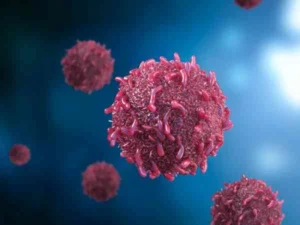Introduction to Myocarditis
Myocarditis is an inflammation of the myocardium, and the heart muscle, usually caused by an infection. It can also be caused by physical or chemical injury to the heart. This can lead to transient or sustained cardiac dysfunction with a broad spectrum of clinical presentations.
Ranging from asymptomatic atypical chest pain with abnormal electro-cardiogram findings to life-threatening cardiogenic shock. This ultimately leads to sudden death. Myocarditis can affect individuals in any age group. It is thus an important cause of morbidity in the general population. In this article, we will learn more about myocarditis. Its signs, symptoms, and treatment.

Types of Myocarditis
- Acute myocarditisis a type of myocarditis occurring in a short period of time. Generally, it is caused by a viral infection, and symptoms can appear suddenly and may disappear just as quickly.
- Chronic myocarditis is when the disease takes a longer than usual time to treat or if symptoms reappear after treatment. It can also be caused by more systemic inflammatory disorders, such as autoimmune conditions, in which the body’s immune system attacks its own healthy cells and tissue.
- Lymphocytic myocarditisis a rare form of myocarditis, which can cause severe illness and hospitalization. This occurs when white blood cells called lymphocytes invade the heart muscle and cause inflammation. It may be caused by a virus.
What are the Symptoms of Myocarditis?
- Chest Pain or Discomfort:One of the most common symptoms of myocarditis is chest pain or discomfort that can range from mild to severe. It may be intermittent or persistent, and it can occur even when you’re resting. This type of chest pain could signal an underlying heart condition.
- Fatigue:Fatigue is another common symptom associated with myocarditis. Although many people mistake this for simple exhaustion due to overexertion. If you find yourself feeling fatigued all the time, despite getting plenty of sleep, then this could be an indication. Make sure to share any concerns with your doctor so they can investigate further.
- Shortness Of Breath:Shortness of breath is another potential sign of myocarditis and should not be taken lightly. If you find yourself becoming dizzy or lightheaded after doing only minimal physical activity. Such as climbing a few stairs or walking around the block. Then there may be something else going on in your body beyond simple exhaustion from overexertion.
- Palpitations:Some individuals also experience palpitations which are moments when their heart skips a beat or races at an irregular rhythm. Palpitations can be frightening and may cause feelings of anxiety in some individuals. However, they generally aren’t dangerous if they happen occasionally or last for only a few seconds at a time.
- Flu-like Symptoms:Finally, flu-like symptoms such as muscle aches, fever, and chills can also be a symptom.
Diagnosis Tests for Myocarditis
Diagnosis tests for Myocarditis are used to detect and diagnose the disease. These tests may vary from simple blood tests, chest X-ray, electrocardiogram (ECG), echocardiogram (ECHO), cardiac catheterization, and magnetic resonance imaging (MRI) of the heart. The final diagnosis with biopsy samples of the inner myocardium obtained during a surgical procedure confirms the status. These diagnostic tests will assess the health of the heart tissues, any inflammation present, and if there is any damage due to a virus or any other pathogenic agent which could have caused this particular condition.
What are the treatments for Myocarditis?

- Medications:Your doctor may prescribe certain medications to help reduce inflammation or manage pain associated with myocarditis. These could include corticosteroids, anti-inflammatory drugs, antibiotics, and antivirals.
- Education:It’s important to have an understanding of myocarditis so you know what signs or symptoms might signal an impending flare-up or worsening of the disease. Learning about how to keep yourself as healthy as possible can also be beneficial – this means being aware of lifestyle habits (such as smoking) and activities (like exercise) that can affect your physical health and capacity for recovery.
- Lifestyle Changes:Certain lifestyle changes can help reduce inflammation in the heart muscle, prevent flares, and promote overall health in people living with myocarditis: reducing stress through relaxation techniques such as yoga; maintaining a healthy weight; avoiding strenuous activities that can stress the heart; quitting smoking; limiting alcohol consumption; eating nutrient-rich foods such as leafy greens, fish, nuts and whole grains; getting plenty of restful sleep each night; drinking plenty of fluids throughout the day; and remaining active with low-impact exercises such as swimming or walking on flat surfaces throughout the week (with doctor approval).
- Surgery:In some cases, surgical intervention may be necessary for managing cases of myocarditis where there is damage to cardiac tissue beyond repair or other underlying issues affecting normal organ function like congenital heart defects. Surgery choices range from coronary bypass surgery to minimally invasive procedures such as cryoablation or radiofrequency ablation therapy which freeze away dead tissue from within the affected area of the heart muscle wall, assisting in tissue regeneration thereby relieving symptoms or promoting blood flow in areas where vessels have narrowed due to bacterial infection.
- Complementary Therapies:Although not proven effective in treating myocarditis directly, complementary therapies may provide relief from mild symptoms experienced by those who live with chronic illness forms of this condition like Lyme cardiomyopathy – these include things like acupuncture, acupressure, hypnosis biomedical feedback therapy, massage therapy, reflexology, Reiki craniosacral therapy…the list goes on!
Surgery for Severe Cases of Myocarditis
Surgery for severe cases of myocarditis is a serious, but potentially life-saving treatment for patients with this condition. It involves removing damaged tissue from the heart and implanting a graft or artificial valve to replace the affected part or augment the remaining functioning muscle. In some cases, doctors may need to useextracorporeal membrane oxygenation (ECMO)to support heart function while an artificial valve is being put in place. Surgery may be an intimidating prospect, but it can also be a very effective form of treatment for those who are severely ill due to myocarditis.
Nutrition Tips for People With Myocarditis

Myocarditis can be a difficult condition to navigate, especially when it comes to nutrition. Just like any other chronic condition, healthy eating is essential for managing myocarditis and controlling symptoms. Eating nutritious foods can help improve energy levels, reduce inflammation, and balance emotions.
Nutrition tips for people with myocarditis include eating plenty of fruits and vegetables; reducing sodium intake; avoiding processed foods; including lean proteins in the diet; limiting consumption of caffeine, alcohol, and sugary drinks; drinking plenty of water; and seeking support from a registered dietitian or nutritionist if needed. Following these tips can help people with myocarditis make positive dietary choices to positively impact their health.
How to Manage Stress in People With Myocarditis
Stress management is an important tool for people with myocarditis, as it can help reduce the risk of further heart damage. Techniques such as cognitive-behavioral therapy, relaxation techniques (e.g. breathing exercises, meditation, and yoga), guided imagery, exercise and physical activity, healthy dieting, and lifestyle changes may prove beneficial for reducing stress levels and improving overall health. Furthermore, psychosocial support such as counseling or support groups may be an additional valuable source of stress management to help in this condition.
Complications From Long-Term Living with Myocarditis
Myocarditis is a potentially life-threatening condition. Living with this long-term condition can have many complications, includingarrhythmias(abnormal heart rhythms), enlargement of the heart, congestive heart failure, and sudden cardiac death.
Regular monitoring for potential changes in their cardiac status, as well as for any new symptoms or side effects from medication. Regular exercise and lifestyle changes such as quitting smoking or controlling body weight are essential for patients with myocarditis in order to reduce the risk of further complications from their condition.
Prevention tips to lower the risk of developing myocarditis

To reduce the risk of developing myocarditis, individuals should make lifestyle changes to help avoid infectious viruses. This includes avoiding close contact with someone who has an infectious illness. Also washing hands frequently, and properly storing food for safety and hygiene.
Individuals should also adhere to vaccines for prevention, such as getting the vaccine for the flu or other illnesses. Additionally, it’s important to be mindful of existing heart conditions when engaging in strenuous activities. Such as exercise to prevent possible complications from overworking the heart muscle. Lastly, avoiding smoking, alcohol consumption, and recreational drugs is essential for good cardiac health.
Long-term Outlook for People with Myocarditis
The outlook for people living with myocarditis will depend on the severity of their condition. But they can often lead healthy lives after diagnosis and treatment. Long-term management includes lifestyle modifications such as modifying diet and engaging in regular physical activity. A combination of medication and lifestyle changes can help reduce inflammation and improve symptoms associated with the condition.
For those who have myocarditis, the prognosis, and outlook will vary depending on the type present and the treatment. In some cases, people may make a full recovery with proper medical care. However, in serious cases, the prognosis may be poor and the patient may develop long-term heart failure. Fortunately, advances in technology have enabled early diagnosis and treatment. So that patients can maximize their chances of recovery.
When to Seek Medical Care for Myocarditis
Myocarditis is an inflammation of the heart muscle that requires immediate medical attention. When there are signs and symptoms of myocarditis such as chest pain, rapid heartbeat, or breathing difficulty. Make sure it is important to seek medical care right away.
It is especially important to get medical help if the person has had any recent infections. Or if they experience fatigue or have a history of heart disease or high blood pressure. Medical diagnosis and treatment will involve ruling out other possible causes of Symptoms. Having any necessary tests such as an electrocardiogram (ECG) may include medications to reduce inflammation.





